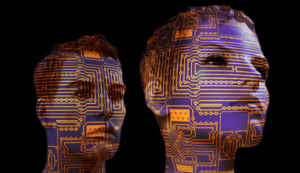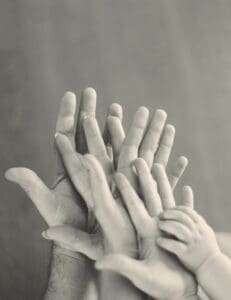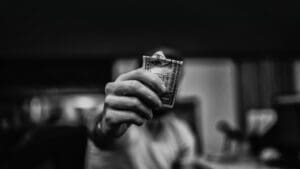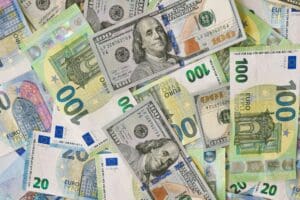APRIL 9, 2020
Derek Thompson: The four rules of pandemic economics
The simplest way to help Americans is to send out checks quickly. But under the CARES Act, poor families who did not file tax returns will not be getting stimulus money unless they file their returns retroactively.* Anyone working in the adult-entertainment industry or whose work is of a “prurient sexual nature” does not qualify for aid. Small-business owners who have been convicted of a felony are not eligible for a $350 billion loan program meant to protect their employees’ jobs. That entire program, which is to be administered by private banks, was thrown into disarray right from the start, as some banks refused to participate and others prioritized their own existing customers. The inequities in the CARES Act could have been worse; the initial Republican version of the law gave poor families half the amount that middle-class families would receive. But the $2 trillion bill could have also been a lot better; it omits a host of other programs that would have helped vulnerable people: student-loan cancellation, expanded health-care coverage, a monthly universal income, rent assistance.
Even when our policies offer aid to the poor, they often require bureaucratic hoop-jumping, work requirements, or some condition that demonstrates the recipients’ need and moral uprightness. This sanctimony is partly a function of human nature. In the famous “ultimatum game,” in which one player is given a small sum of money and the discretion about how to divide it with another participant—whether 50–50 or 80–20—the second player will frequently refuse to take any money if the first proposes an unfair split. In other words, we would rather go without ourselves than see others take more than they deserve. Our desire to punish bad actors may have given humans evolutionary advantages, but it has led to punitive economic policies that harm us all. Policies built to punish supposed freeloaders above all else end up punishing society as a whole. Shutting out the unworthy may feel good—but not for long, if doing so pushes our economy into an ice age.
Read: How the pandemic will end
American welfare policies have long been rooted in the belief that poverty is a personal failure rather than a systemic one. The civil-rights movement won some early successes in promoting a measure of economic justice for the victims of racism and segregation. Then came the backlash. With encouragement from Richard Nixon and conservative think tanks, economists, and media commentators, many Americans believed that what ailed the poor—a category often treated as synonymous with African Americans—was only their bad choices, “broken families,” and lack of work ethic. From Ronald Reagan’s tales of welfare cheats to Bill Clinton’s attacks on a “culture of dependency,” blaming poverty on its victims has been a winning political strategy and has resulted in large-scale suffering and increased inequality.
Moral arguments are more easily weaponized against people than against complex banks and other large corporations. While this is partly an ideological matter, it is also a reflection of the limits of human understanding. We can easily reach the judgment—as many Americans did during the subprime-loan crisis a dozen years ago—that our neighbors spent too much on their house and took out a dishonest mortgage. But the far more costly misdeeds of massive corporations are often too large and too distant to factor into our moral code. This was exactly the logic guiding the 2008 bailout. Though a few people urged policy makers to bail out homeowners instead of banks, that became politically unsavory. The CNBC commentator Rick Santelli helped launch the Tea Party movement with a rant: “The government is promoting bad behavior! … How many of you people want to pay for your neighbor’s mortgage that has an extra bathroom and can’t pay their bills?”
The culpability of individuals facing financial ruin was paramount. You knew what you were getting into, many commentators said. Helping you would create a moral hazard, they said. Let people bear personal responsibility for their own decisions, they said. So America did. And thus, the rich got richer and the poor got poorer. Inequality reached crisis levels, wages stagnated, the racial wealth gap grew, and jobs became less secure—which consequently explains how, in 2020, 10 million Americans could lose their jobs in two weeks’ time.
Adam Serwer: We can finally see the real source of Washington gridlock
The theory of bailing out banks is that they are essential to the nation’s economic well-being, even when their policies and practices have not been broadly beneficial to the community. The Fed’s 2008 and 2020 policy was to “lend freely in a panic” to all banks. Walter Bagehot, the intellectual founder of central banking, understood two centuries ago that the best thing to do in a crisis is to give to all in need. As Bagehot explained in his account of one financial crisis:
They must lend to merchants, to minor bankers, to “this man and that man,” whenever the security is good. In wild periods of alarm, one failure makes many, and the best way to prevent the derivative failures is to arrest the primary failure which causes them.
The best policy is to generously flood the market with funds to stop the panic and restore calm. A panic is not the time to withhold funds or try to distinguish between the worthy and the unworthy. Bank panics are often compared to a contagion. Perhaps the same lesson applies to an actual contagion. Most Americans seem to understand the imperative of social distancing for the collective good. Perhaps this is because we cast no moral aspersions on those who are exposed to the disease, and because we realize that we are all connected. But we are all connected economically too. And the more we look for moral excuses to withhold help from the most vulnerable, the more we all suffer together.




















